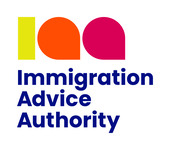Table of Contents
Religious and Cultural Marriages for UK Spouse Visa
In many parts of the world, couples marry through religious or cultural ceremonies that may or may not be registered with civil authorities. This can have serious impacts on your UK Spouse Visa application. To meet the requirement for a UK Spouse or Partner, you need to confirm that your religious or cultural marriage meet the requirements.
We often support clients from diverse backgrounds who are navigating the complexities of religious and cultural marriages in UK immigration. In this article, we explain when such marriages are valid, how they are assessed by UK Visas and Immigration (UKVI), and how you can strengthen your application.
Why It Matters: Legal Recognition vs Cultural Validity
The UK Home Office draws a clear line between culturally valid and legally recognised marriages.
To qualify for a UK spouse visa, civil partner visa, or under Appendix FM of the Immigration Rules, the marriage must be legally recognised in the UK. Cultural or religious recognition alone is not sufficient.
🔗 Appendix FM of the Immigration Rules
Types of Religious and Cultural Marriages
Religious and cultural marriage ceremonies vary significantly across regions and faiths. Common examples include:
- Islamic Nikah ceremonies
- Hindu weddings
- Sikh Anand Karaj ceremonies
- Jewish weddings
- Customary African marriages
- Tribal or traditional rites
While these ceremonies are meaningful within their communities, not all of them are automatically recognised under UK law. To be valid and recognised, they must comply with civil requirements.
UK Immigration Rule: Is Your Marriage Legally Recognised?
Recognised Marriages
The Home Office has specific assessment for recognising marriages. Your marriage will generally be recognised for UK immigration if:
- It is valid under the law of the country where it took place, and
- It would be recognised under UK law
This includes a marriage performed by a recognised authority and registered with the civl registry in that country. A religious marriage that also fulfils legal requirements, such as registration or licensing.
Example:
- A Nikah ceremony registered at a civil registry in Pakistan is generally accepted.
- A Hindu wedding in India, where the marriage is also registered under the Hindu Marriage Act, is valid.
Unrecognised Marriages
Conversely, the Home Office will not consider your marriage valid for UK immigration purposes, if it is a:
- Religious-only marriages not registered with the local civil authorities
- Ceremonies performed in the UK without a civil marriage (e.g., Nikah-only marriages in the UK)
- Polygamous marriages (where one party has multiple spouses)
Example:
- A Nikah ceremony in the UK without a civil registration is not recognised as a legal marriage.
In these cases, applicants may have to apply as unmarried partners, provided they meet the 2-year cohabitation rule.
Read our article 🔗 Cohabitation Evidence for UK Spouse Visas
How to Prove a Religious or Cultural Marriage is Valid for UK Spouse Visas
If your marriage took place outside the UK:
1. Provide a Legally Valid Marriage Certificate
- Issued by a recognised civil authority
- Shows full names, date, and place of marriage
- Must be translated into English if in another language
For Islamic, Hindu, or other religious ceremonies abroad: you must also prove civil registration of the marriage.
2. Show Proof of Legal Recognition in the Country of Marriage
The Home Office may also ask you to provide any of the following in order to confirm legal recognition your marriage:
- Evidence of registration with a government body
- Affidavits or statements from legal authorities
- Confirmation from embassy in your home country
Some countries issue both religious and civil documents—you must submit the civil one.
3. Prove the Marriage Would Be Recognised in the UK
This is particularly relevant for customary or tribal marriages (e.g. in Nigeria, Ghana, or India). If the country allows customary law marriages, and such marriages are properly conducted under that system, the UK may recognise them—but you must prove it.
What If Your Religious or Cultural Marriage Is Not Recognised?
If your marriage is not legally recognised, you may consider:
Option 1: Register the Marriage Civilly Abroad – Before applying, go back and register the marriage officially with the civil authorities in the country where the religious ceremony occurred.
Option 2: Apply as an Unmarried Partner – You must show at least 2 years of cohabitation akin to marriage. Evidence can include joint bills, shared lease agreements and photos and communication history.
Option 3: Get Legally Married in the UK – If you’re both in the UK, you can give notice and complete a civil marriage, which will be recognised for immigration. But be cautious—if your immigration status doesn’t allow marriage in the UK, this could breach visa conditions.
Supporting Evidence for All Types of Marriages
Regardless of whether your marriage is civil, religious, or customary, UKVI will also assess whether the relationship is genuine and subsisting. Provide:
- Photos from your wedding
- Travel history and joint trips
- Messages and communications
- Family support statements
See our post Proving Your Relationship for a UK Partner Visa
Common Pitfalls in Cultural Marriage Applications
- Submitting only a religious certificate without a civil registration
- Poor translation of documents. You must provide officially translated documents, where you marriage certificate is not issued in the English language.
- Assuming a UK Nikah is sufficient without civil registration
- Failing to prove the marriage is recognised in the home country
- Lack of relationship evidence. You can not rely solely on your marriage certificate, it is only one way the Home Office assesses that your relationship is genuine.
In conclusion
Religious and cultural marriages can be recognised for UK immigration—but only if they meet the Home Office’s legal standards. A valid marriage must be legally recognised in the country where it took place and meet UK recognition criteria.
If your marriage is not legally valid, don’t worry—you still have options. But navigating the requirements takes expertise, especially when dealing with customary or non-standard marriages.
Let us help you prepare a strong and compliant UK spouse visa application, whether you had a traditional Indian wedding, Islamic Nikah, or customary African ceremony.
Author

Tochi Okoronkwo
Tochi is an OISC certified immigration adviser with expert knowledge of UK Immigration Law and a genuine desire to make your immigration journey as smooth and stress-free as possible.
Stay Updated
Related Articles
Quickly browse the latest offers, read in-depth articles, and case studies to get the full story.


